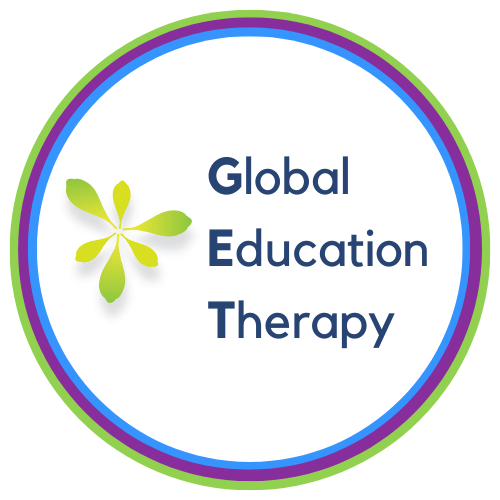GET FREE Webinars
Come join our quick and easy 30-minute webinars about Speech, sensory ideas, daily life skills, behavior management, and more from professional Speech Language Pathologists, Occupational Therapists, and Special Educators.
-
Regulation Before Education
The Polyvagal Theory, developed by Dr. Stephen Porges, helps explain why emotional regulation and co-regulation are the foundation for classroom success, positive behavior, and strong relationships. Without regulation, the brain is in survival mode, not learning mode.
In this webinar, we’ll introduce the three nervous system states — Green Zone (calm and connected), Yellow Zone (fight/flight), and Blue Zone (shutdown) — and show how to recognize them in children. You’ll also learn practical regulation strategies for home, school, and therapy, plus real-life case examples that show how regulation before education transforms learning.
-
Everyday Sensory: Daily Strategies for your routine
Most parents and teachers have heard the word “sensory” — but aren’t always sure what it really means or how it impacts a child’s daily life. For children, sensory processing plays a key role in emotional regulation, focus, and learning. When the sensory system is overloaded or under-responsive, behaviors can look confusing, frustrating, or even defiant.
In this webinar, we’ll break down the basics of sensory processing and explain how to recognize the signs of sensory challenges in everyday routines. You’ll discover simple strategies for adding sensory activities into your day — without needing elaborate crafts or extra hours of preparation. We’ll also discuss when it might be time to consult with an occupational therapist or professional for further support.
-
How to Survive Tantrums & Meltdowns
Help! Is your toddler throwing tantrums and you’re not sure what to do? Many parents struggle to tell the difference between a tantrum and a meltdown — or how to respond in a way that actually helps. These behaviors can be overwhelming, but with the right tools, you can better support your child through big emotions and challenging transitions.
We’ll explain the difference between tantrums and meltdowns, highlight common triggers that set them off, and share quick communication and transition strategies you can use at home. You’ll also learn tips and tricks for managing difficult behaviors and when it might be time to consult a professional for extra support. Parents will leave with practical tools to reduce stress and strengthen connection during tough moments.
-
Bilingual and Multilingual kids Webinar
Does your household speak more than one language? Worried your child might get confused? Or maybe you’re interested in introducing a new language to your child? Many parents wonder how multilingualism impacts speech, language, and learning.
In this webinar, we’ll explore the myths and facts about raising multilingual children, review different language learning methods, and share tips and tricks to support success at home. We’ll also discuss when to seek professional guidance. Parents and caregivers will leave with confidence and practical strategies to support their child’s multilingual journey.
-
Holiday Survival Guide with the kids!
The holiday season is here, and travel with kids can feel overwhelming. Whether you’re going by car, train, or plane, parents often wonder how to keep children entertained, manage routines, and reduce stress on the go.
In this webinar, we’ll share family travel tips for car, train, and plane, plus kid-friendly entertainment ideas that work anywhere. You’ll also learn practical strategies to handle jet lag and creative ways to manage gifts while traveling. With these tools, your family can enjoy smoother trips and more joyful holiday moments together. Join us to feel more prepared, less stressed, and ready to make lasting memories this holiday season.
-
What is Occupational Therapy (OT) and does my child need it?
Have you ever wondered what occupational therapy (OT) really is? Maybe your child struggles with organization, attention, or daily routines — and you’re not sure how OT can help. Believe it or not, OT goes far beyond handwriting and sensory skills!
In this webinar, we’ll explain the definition of OT, highlight the wide range of skills and challenges OT can address, and share when to consult a professional for support. Parents and caregivers will leave with a clear understanding of how occupational therapy can help children thrive at home, in school, and in daily life.
-
Differences and Disability: Discussions with your child
Many parents wonder how to have important conversations with their children about identity, culture, or learning differences. These topics can feel overwhelming, but they are also opportunities to help kids build pride, resilience, and a strong sense of self. By approaching these discussions with openness and support, families can foster connection and confidence in their children.
In this webinar, Sarah Fowler and Christine Law will share personal and professional experiences in guiding these conversations. We’ll explore how to talk with children about their nationality, language, and culture, as well as their learning differences and abilities. Parents and caregivers will leave with practical strategies to create safe, respectful, and empowering conversations at home.
-
Parent's Guide to International Schools
Do you have a child who needs learning support in an international school and aren’t sure how to advocate for their needs? Many parents feel overwhelmed by the process of choosing and applying to schools abroad, especially when trying to balance academics, cultural fit, and specialized services.
In this webinar, Global Education Therapy and Remfrey Educational Consulting will share strategies for navigating the international school system. We’ll cover how to research and approach schools, how to present your child’s strengths and needs to school administration, and what to know about learning support options. We’ll also answer common parent questions and provide practical tips to make the process feel less stressful.
-
MEET THE TEAM: Erin Long on Expat Parenting tips!
Curious about the story behind Global Education Therapy (GET)? Join us for a special session with Erin Long, CEO and Founder of GET, as she shares her journey of building the company and the inspiration that continues to guide her work today. Erin will discuss both the professional experiences and personal insights that shaped her vision for helping families around the world access high-quality educational and therapeutic support.
In this webinar, Erin will also introduce some of the core topics that make GET unique, including the benefits of online speech therapy, the realities of expat parent life, and more. Parents and caregivers will leave with a better understanding of GET’s mission and the resources available to support children’s learning and development across the globe.
-
Parent Guide to Self Care
“Self-care” is a popular buzzword, but many parents wonder how to actually make it work in the middle of busy family life. Between juggling kids, work, and household responsibilities, it can feel impossible to prioritize your own needs without guilt. Yet, caring for yourself is essential to building resilience, managing stress, and being present for your children.
In this webinar, Vivian Chiona from Expat Nest and Christine Law will share both personal and professional insights on fitting self-care into daily life. We’ll explore why self-care matters, how to define what it means for you, and practical ways to include it in your routine. Parents will leave with realistic, empowering strategies to support their own well-being — and in turn, strengthen their ability to care for their families.
-
Establishing Healthy Boundaries with your Child
Many parents struggle with setting boundaries that actually work — but healthy boundaries are essential for creating structure, safety, and mutual respect within the family. When children know what to expect, they feel more secure and parents can reduce daily power struggles.
Sharoya Ham from Embrace Behavior Change and Christine Law will share practical strategies for setting and maintaining boundaries. We’ll explore what boundaries really are, why they matter, and how to implement or adjust them in age-appropriate ways. Parents will also gain tips and strategies to strengthen consistency at home. You’ll leave with confidence and tools to build a calmer, more cooperative family dynamic.
-
Parent's Guide to Psychological Educational Evaluations
Does your child need psychoeducational testing? Many parents wonder what it involves, when it’s necessary, and how it can help. Testing is a valuable way to understand a child’s learning strengths and challenges, and it can guide education plans and support strategies at home and in school.
In this webinar, Dr. Amy from Therapy Solutions will explain the testing process, what families need to know before and after, and how online testing can work for families living abroad. Parents will leave with clarity, confidence, and practical next steps for supporting their child’s learning needs. This session is designed to make a complex process easier to understand.
-
Parent's guide to Support Services!
Curious about what support services like speech therapy, occupational therapy, or reading intervention really involve? Many parents wonder if their child could benefit, how these services work in schools, and what difference they make for both students and teachers. Knowing when to seek extra support can feel confusing, but the right services can make a huge impact on a child’s learning and confidence.
In this collaborative webinar with Hemisphere’s Academy, we’ll explain what these services look like in practice, how to tell if your child may benefit, and why teachers value working alongside specialists. We’ll also cover common parent questions so you leave with clarity and practical next steps. This session is a helpful guide for families exploring extra learning support.
GET Ready: Upcoming Webinars

Parent's guide to Psych Educational Testing
Does your child need Psych Educational Testing? Curious what that entails and what you need to do? Want to know more about how testing is done online? Check out our Webinar that will be released at the end of the month!

Parent guide to Self Care
Self care is a big buzz word right now! But how in the world do you fit it in-especially as a parent? Join our helpful chat from Vivian Chiona from Expat Nest and Christine Law as they discuss about how to fit in self care as a parent!
We will be discussing:
Why is it important?
What is self care to you?
How to implement it in your daily life?
FAQ

Meet the Team: Erin Long, CEO and founder of GET
Meet Erin Long our CEO and Founder of GET. Come join us as she introduces herself as well with how she began GET! She will also discuss other topics such as…
Speech
Expat Parent life
AND More!

Differences and Disability: Discussions with your child
Join our helpful chat from Sarah Folwer and Christine Law as they discuss about their own experiences both personally and professionally.
We will be discussing how to discuss with your child about their unique
Nationality/language/culture
Learning differences and/or ability
and more!

Parent's Guide to International Schools
Worried about finding the perfect international school for your child? Do you have a child who needs learning support? Frustrated about the whole process?
GET and Remfrey Educational Consulting will cover:
How to navigate the international school process
How to present your child to school adminstration
Learning support
FAQ and more!

What is Occupational Therapy (OT) and does my child need it?
What is Occupational Therapy (OT)?
Have you ever wondered what OT was? Maybe your child might have some organization and attention difficulties? Believe it or not, OT can work on more than just handwriting and sensory! Global Education Therapy will review:
The definition of OT
What OT can address
When to consult a professional
FAQ
Watch it whenever you want on our website from 27 Jan!

Multilingualism and Your Child
11:30AM PST & 8:30PM CET
Does your household speak more than one language? Are you afraid that your child will get confused with multiple languages? Or are you interested in introducing a new language to your child? GET will review:
The Myths and Facts of Multilingualism
Different language methods
Tips and tricks to raise a successful multilingual child
When to consult a professional

How to Survive Tantrums and Meltdowns
11:30AM PST & 8:30PM CET
Help! Is your toddler throwing a tantrum and you just don’t know why? Want to learn some quick communication and transition tricks and tips? GET will review:
The difference between a tantrum and meltdown
Triggers of tantrums and meltdowns
Tips and tricks to manage these behaviors
When to consult a professional

Everyday Sensory: How to implement sensory activities into your daily routine @ 22 Sept, Thursday 11:30AM PST/2:30PM EST/8:30PM CET
11:30 AM PST & 8:30PM CET
Heard the word “sensory” but not really sure what it means? Not sure if you have the time to do sensory activities and crafts during your busy schedule? Our first GET webinar will review:
Introduction to Sensory Processing
Signs of Sensory issues
How to implement sensory into your routine
When to consult a professional
